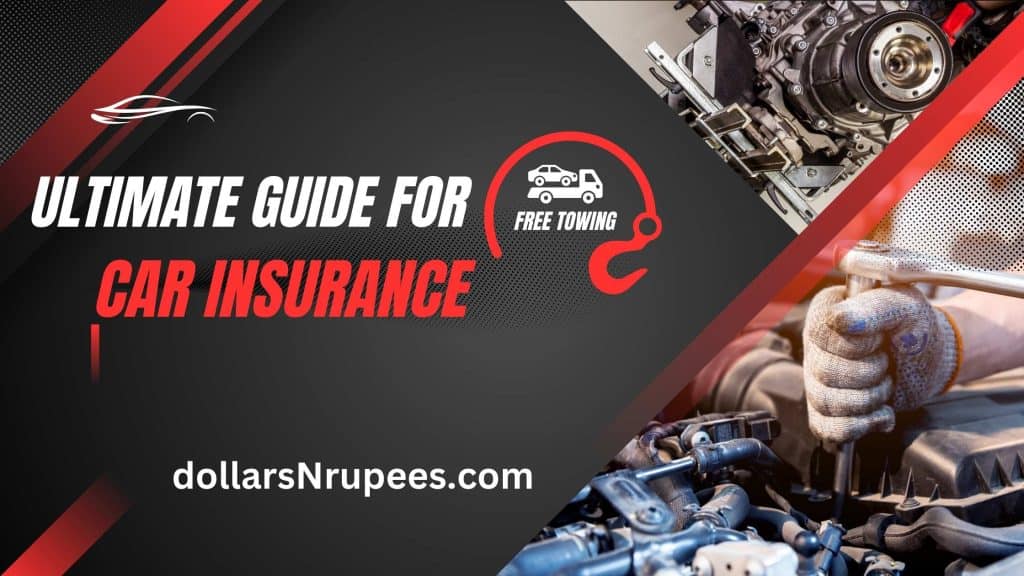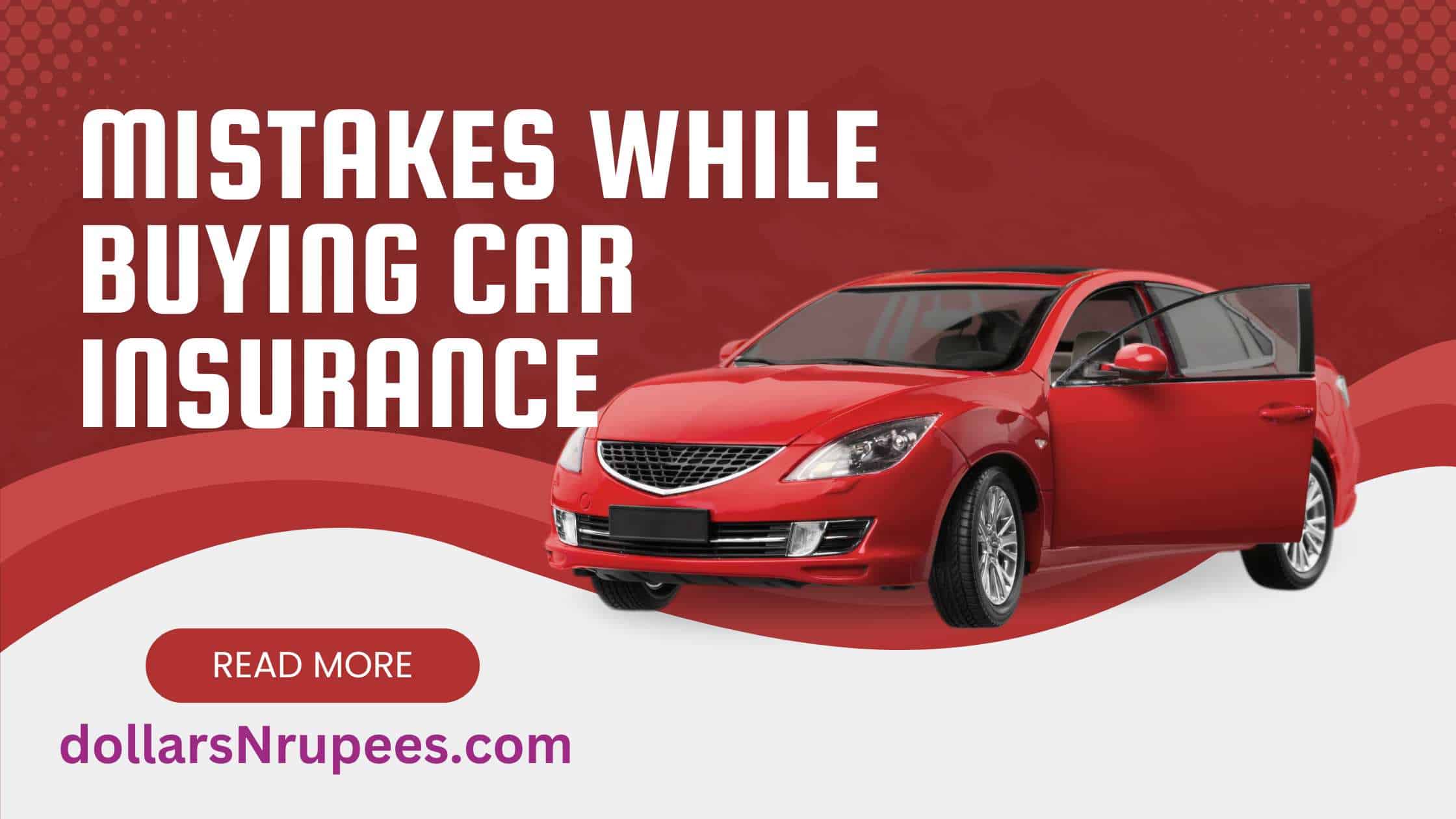In today’s fast-paced world, owning a car has become more of a necessity than a luxury for many people. With the increasing number of vehicles on the road, having proper car insurance is crucial to protect yourself from financial losses in case of accidents or other unforeseen events. However, buying car insurance can be a daunting task, and many people end up making mistakes that can cost them dearly in the long run. In this comprehensive guide, we will delve deep into each of the most common mistakes people make while buying car insurance and provide detailed insights on how you can avoid them.
Related: 9 Most Common Mistakes While Buying Health Insurance
Basics First – Understand Car Insurance
Why Car Insurance is Essential?
Car insurance is a fundamental requirement for drivers, providing financial protection and peace of mind. Beyond its legal necessity, insurance safeguards against unforeseen accidents, covering repair costs and medical expenses in the event of a collision. Additionally, it offers liability coverage, ensuring drivers are not financially liable for damages or injuries caused to others.
The Importance of Protection
Car insurance also protects against uninsured drivers and is often a requirement for those with car loans or leases. It offers a layer of security and reassurance, allowing drivers to navigate roads confidently. Ultimately, car insurance is a vital aspect of responsible vehicle ownership, offering financial security and ensuring drivers can traverse roads safely.
Related: 12 Most Common Mistakes While Buying Life Insurance

8 Mistakes While Buying Car Insurance
1. Not Researching Thoroughly
One of the most common mistakes people make while buying car insurance is not doing enough research. Many individuals simply go with the first insurance company they come across or stick with the same company they have been using for years without comparing quotes from other insurers. This can result in paying higher premiums for the same coverage. To avoid this mistake, it’s important to research multiple insurance companies, compare quotes, and understand the coverage options each company offers. You can use online comparison tools to simplify this process and ensure you get the best deal.
2. Ignoring Coverage Limits
Another common mistake is ignoring the coverage limits of the policy. It’s essential to understand what your policy covers and what it doesn’t. Many people opt for lower coverage limits to save money on premiums, but this can leave them vulnerable in case of a major accident where the damages exceed their coverage limits. To avoid this mistake, assess your insurance needs based on factors such as your car’s value, your driving habits, and your financial situation. Opt for adequate coverage that provides sufficient protection in case of an accident.
3. Underinsuring
While it’s tempting to save money by opting for minimum coverage, underinsuring your car can be a costly mistake. In case of an accident, you may end up paying out of pocket for damages that exceed your coverage limits. It’s important to assess your needs and opt for adequate coverage based on your car’s value and your driving habits. Consider factors such as the cost of repairs or replacement, medical expenses, and potential legal fees when determining your coverage limits.
4. Not Considering Deductibles
Deductibles are the amount you have to pay out of pocket before your insurance kicks in. Many people opt for lower deductibles to minimize their out-of-pocket expenses in case of a claim. However, this can result in higher premiums. It’s important to strike a balance between deductibles and premiums based on your financial situation. Consider factors such as your ability to pay out of pocket in case of a claim and the impact of higher deductibles on your premiums when choosing your deductible amount.
5. Not Disclosing All Information
Providing incorrect or incomplete information while buying car insurance can lead to claim denials or policy cancellations later on. It’s important to disclose all relevant information such as your driving history, car modifications, and usage accurately to ensure you get the right coverage. Be honest and upfront with your insurance provider to avoid any complications during the claims process.
6. Not Reviewing Policy Periodically
Your insurance needs may change over time due to factors such as changes in your driving habits, car value, or lifestyle. Not reviewing your policy periodically can result in being underinsured or paying for coverage you no longer need. It’s important to review your policy annually and make adjustments as necessary. Consider factors such as any changes in your car’s value, any additional drivers or vehicles, and any changes in your driving habits when reviewing your policy.
7. Ignoring Add-On Covers
Many insurance companies offer add-on covers such as roadside assistance, zero depreciation, and engine protection at an additional cost. Ignoring these add-ons can be a mistake, especially if you frequently travel long distances or live in an area prone to accidents or thefts. Consider your individual needs and assess whether these add-ons would provide value to you based on your driving habits and the conditions in which you drive.
8. Not Shopping Around for Discounts
Insurance companies offer various discounts such as multi-car discounts, no-claim bonuses, and loyalty discounts to attract customers. Not shopping around for these discounts can result in paying higher premiums than necessary. Take the time to explore the discounts offered by different insurance companies and see if you qualify for any. You may be able to save a significant amount of money by taking advantage of these discounts.
Conclusion
In conclusion, buying car insurance requires careful consideration and thorough research to avoid common mistakes that can lead to financial losses in the event of an accident or other unforeseen events. By understanding your insurance needs, comparing quotes from multiple insurers, and considering factors such as coverage limits, deductibles, and add-on covers, you can make informed decisions and ensure you get the best coverage at the best price.
